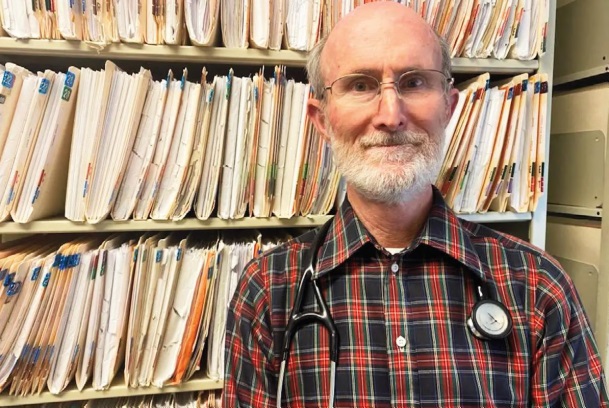PATIENTS SEEK MENTAL HEALTH CARE FROM THEIR DOCTOR BUT HEALTH PLANS STAND IN THE WAY
BY ANERI PATTANI
When a longtime patient visited Dr. William Sawyer's office after recovering from covid, the conversation quickly turned from the coronavirus to anxiety and ADHD.
Sawyer – who has run a family medicine practice in the Cincinnati area for more than three decades – said he spent 30 minutes asking questions about the patient's exercise and sleep habits, counseling him on breathing exercises, and writing a prescription for attention-deficit/hyperactivity disorder medication.
At the end of the visit, Sawyer submitted a claim to the patient's insurance using one code for obesity, one for rosacea – a common skin condition – one for anxiety, and one for ADHD.
Several weeks later, the insurer sent him a letter saying it wouldn't pay for the visit. "The services billed are for the treatment of a behavioral health condition," the letter said, and under the patient's health plan, those benefits are covered by a separate company. Sawyer would have to submit the claim to it.
But Sawyer was not in that company’s network. So even though he was in-network for the patient’s physical care, the claim for the recent visit wouldn’t be fully covered, Sawyer said. And it would get passed on to the patient.
As mental health concerns have risen over the past decade — and reached new heights during the pandemic – there’s a push for primary care doctors to provide mental health care. Research shows primary care physicians can treat patients with mild to moderate depression just as well as psychiatrists – which could help address the nationwide shortage of mental health providers. Primary care doctors are also more likely to reach patients in rural areas and other underserved communities, and they’re trusted by Americans across political and geographic divides.
But the way many insurance plans cover mental health doesn't necessarily support integrating it with physical care.
In the 1980s, many insurers began adopting what are known as behavioral health carve-outs. Under this model, health plans contract with another company to provide mental health benefits to
their members. Policy experts say the goal was to rein in costs and allow companies with expertise in mental health to manage those benefits. Over time, though, concerns arose that the model separates physical and mental health care, forcing patients to navigate two sets of rules and two networks of providers and to deal with two times the complexity.
Patients typically don't even know whether their insurance plan has a carve-out until a problem comes up. In some cases, the main insurance plan may deny a claim, saying it's related to mental health, while the behavioral health company also denies it, saying it's physical.
"It's the patients who end up with the short end of the stick," said Jennifer Snow, head of government relations and policy for the National Alliance on Mental Illness, an advocacy group. Patients don't receive the holistic care that's most likely to help them, and they might end up with an out-of-pocket bill, she said.
There’s little data to show how frequently this scenario – either patients receiving such bills or primary care doctors going unpaid for mental health services – happens. But Dr. Sterling Ransone Jr., president of the American Academy of Family Physicians, said he has been receiving “more and more reports” about it since the pandemic began
Even before covid, studies suggest, primary care physicians handled nearly 40% of all visits for depression or anxiety and prescribed half of all antidepressants and anti-anxiety medications.
Now with the added mental stress of a two-year pandemic, "we are seeing more visits to our offices with concerns of anxiety, depression, and more," Ransone said.

FACING HURDLES: After counseling a patient and prescribing ADHD medication, Dr. William Sawyer received a letter from the patient's insurer stating it would not pay for the visit because, under the patient's plan, behavioral health care was covered by a separate company.
That means doctors are submitting more claims with mental health codes, which creates more opportunities for denials. Physicians can appeal these denials or try to collect payment from the carve-out plan. But in a recent email discussion among family physicians, which was later shared with KHN, those running their own practices with little administrative support said the time spent on paperwork and phone calls to appeal denials cost more than the ultimate reimbursement.
Dr. Peter Liepmann, a family physician in California, told KHN that at one point he stopped using psychiatric diagnosis codes in